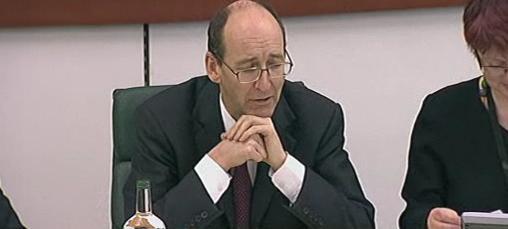 Andrew Tyrie promised that the Treasury Select Committee would be an
assertive, insistent body under his stewardship — and he hasn’t disappointed so far. The committee’s recent evidence sessions have been fiery affairs, particularly by the usual standards of
these things. And today they have released the result: an extensive and prescriptive report into last
month’s Budget.
Andrew Tyrie promised that the Treasury Select Committee would be an
assertive, insistent body under his stewardship — and he hasn’t disappointed so far. The committee’s recent evidence sessions have been fiery affairs, particularly by the usual standards of
these things. And today they have released the result: an extensive and prescriptive report into last
month’s Budget.
Several of the report’s observations are worth noting down — not least that advance briefing of the Budget is “corrosive of good government,” and that “almost all the evidence
received [about the government’s Enterprise Zones] is unsure about the extent to which they will contribute to UK growth.” But more significant is the suggestion that both the Treasury and the
Office for Budget Responsibility could do more to accommodate each other when it comes to constructing growth forecasts. The problem is that some of Osborne’s measures — such as the extra cut
in corporation tax — were decided on so late that the OBR couldn’t, apparently, factor them into their calculations. As the report puts it, rather drily:
For their part, No.11 will no doubt push to get the issue resolved. The continued existence of the OBR depends on two things: its independence and its effectiveness. With Tyrie pushing for a review of the body in 2015, the Chancellor will want to make sure that it doesn’t fall down on either count.“The Treasury now has to deal with an external and independent body in constructing the Budget. It needs to make allowances for that. However, the timetable agreed for this forecast and Budget required all decisions which would impact on the economic forecast to be made at least a fortnight before Budget day. We recommend that the timetable should be revisited to provide more flexibility enabling economic shocks and late political decisions to be accommodated. It is understandable that a number of adjustments to the process and timetable will be needed, given that this was the first full forecast cycle since the creation of the OBR.”






Comments